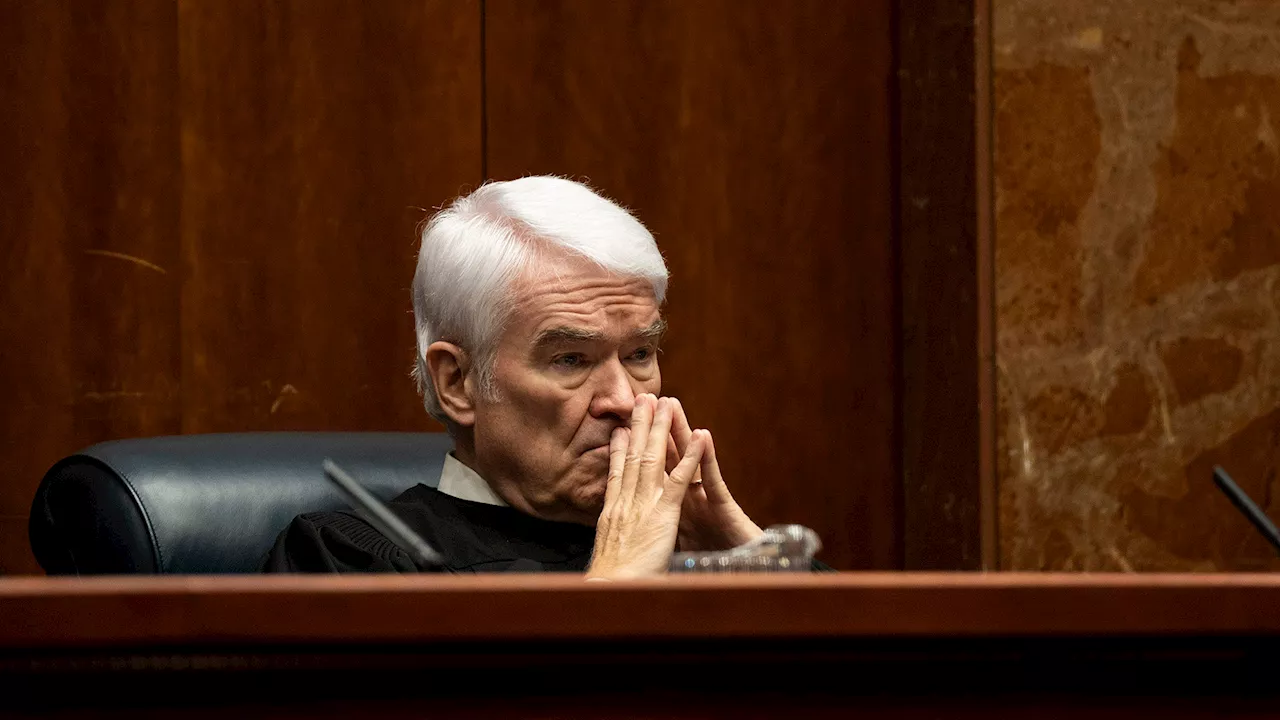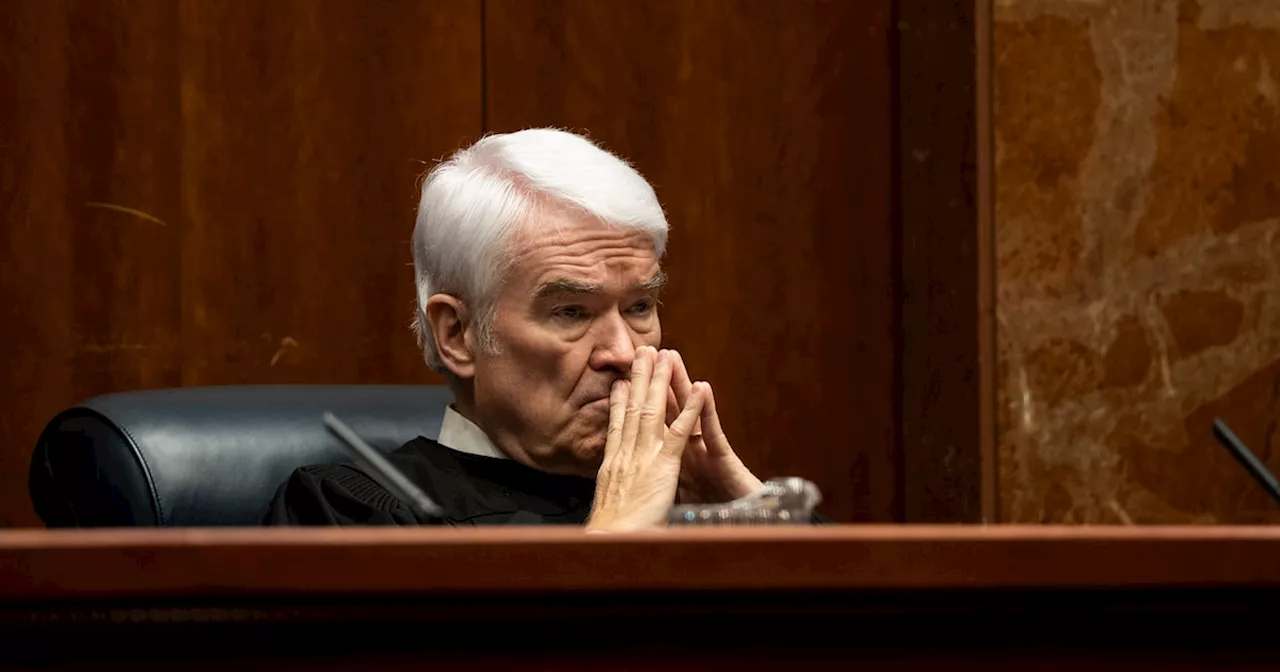The Supreme Court is examining a Texas law mandating age verification for adult websites, sparking debate about free speech, privacy, and the efficacy of protecting minors online.
With online access to pornography and other sexually explicit content easier than ever before, the U.S. Supreme Court on Wednesday will take a fresh look at government efforts to impose new safeguards for children by requiring adult websites to conduct electronic age verification .
The case, brought by an adult entertainment industry trade group and several content creators, challenges a 2023 Texas law that says sites containing more than one-third of 'sexual material' must verify that a user is at least 18 years old or face civil penalties up to $10,000 per day. The law mandates that adult sites implement a system to check a user's digital identification or government-issued ID using a 'commercially reasonable method.' They are not allowed to retain personal information, but the law offers no other requirements for data security and privacy. \Content platforms like Pornhub, one of the most popular websites in the world, have chosen to stop operating in Texas rather than comply with the law. They argue it violates the First Amendment and unfairly targets the porn industry since search engines and social media apps are exempt. The case, Free Speech Coalition v. Paxton, pits a growing nationwide effort to strengthen protections for minors online against long-standing constitutional protections for sexual material that have helped 'More people watch porn and view porn each year than vote and read the newspaper,' said Lisa Blatt, a veteran Supreme Court litigator with Williams & Connolly LLP. A 2016 study in the Journal of Sexual Medicine found that up to 70% of men and 40% of women have consumed pornography within the past year in the U.S., similar levels of exposure to pornography in a number of studies conducted over the past three years. Public health experts say young people who view sexually explicit content are\Ken Paxton, Texas Attorney General, speaks with the media after oral arguments were heard by the United States Supreme Court to determine whether the controversial Florida and Texas social media laws, which prohibits platforms from suspending the accounts of political candidates or media publications can stand, Feb. 26, 2024. The state has said that online age verification should be no more controversial or unconstitutional than the common practice of verifying a customer's age before the purchase of an adult magazine at a newsstand or purchasing liquor at a bar. Supreme Court precedent has set a high bar for laws that infringe on individual free speech rights even if they are meant to advance another compelling public interest, such as protecting kids. Twenty years ago in a remarkably similar case -- Ashcroft v. ACLU -- the court struck down federal legislation that would have required age verification to view sexually explicit material. The decision instead put the onus on parents and technology companies to utilize less burdensome content-filtering software. 'It's time to think again about what is a mechanism that can achieve a legitimate objective of states protecting children from what is increasingly violent and misogynistic pornography online,' said Iain Corby, executive director of the Age Verification Providers Association, an international trade group made up of technology companies. 'It's possible to prove your age entirely on your own cell phone, so no personal data need ever leave the palm of your hand.' An rapidly evolving industry of third-party age verification services and apps, Corby said, has made the process quick, secure, and free -- a far cry from more cumbersome options of two decades ago. 'Because no one disputes that Texas can prevent kids from accessing hardcore pornography, this case is about means, not ends,' the state told the Court in its legal briefing. 'And the means Texas has chosen is appropriate.' \The government cannot make it illegal to publish certain sexual content online without verifying the age of users first, and yet that's exactly what states are now doing,' said Vera Eidelman, an ACLU attorney who focuses on free speech litigation. Eidelman argues that the Texas law robs adults who want to legally view sexually-explicit material the right to anonymity, and potentially puts their private information at risk of abuse. 'It's really different to show your ID in person than it is to have to offer up personal identifying information online, creating potential targets for data breaches, hackers potentially creating much more of a record of what you are looking at,' Eidelman said. She also claims that the Texas law could ensnare a much wider range of websites than those selling pornography, such as those hosting sexual health education resources or R-rated content. 'Young people certainly deserve our protection, but whenever the government is passing a law in the name of protecting kids, I think there are serious questions to be asked about whether what it's really doing is saying the is bad for everyone,' said Eidelman.
Law Supreme Court Texas Law Age Verification Adult Websites Free Speech Privacy Online Safety Pornography
United States Latest News, United States Headlines
Similar News:You can also read news stories similar to this one that we have collected from other news sources.
 Retiring Texas Supreme Court Chief Justice Nathan Hecht reflects on court he helped changeNathan Hecht won six reelections and led the court as chief justice for more than a decade. He retires now not because he’s had enough, but because state law…
Retiring Texas Supreme Court Chief Justice Nathan Hecht reflects on court he helped changeNathan Hecht won six reelections and led the court as chief justice for more than a decade. He retires now not because he’s had enough, but because state law…
Read more »
 Texas Supreme Court Chief Justice Nathan Hecht RetiresNathan Hecht, the longest-serving member of the Texas Supreme Court, is retiring after a long career in law. He reflects on his journey from a New Mexico farm to the state's highest civil court.
Texas Supreme Court Chief Justice Nathan Hecht RetiresNathan Hecht, the longest-serving member of the Texas Supreme Court, is retiring after a long career in law. He reflects on his journey from a New Mexico farm to the state's highest civil court.
Read more »
 Texas Supreme Court Upholds Ruling Dismissing Lawsuit Against Assistant Attorney GeneralThe Texas Supreme Court has rejected a lawsuit aimed at revoking the law license of Assistant Attorney General Brent Webster. The court ruled that the lawsuit, which alleged Webster engaged in misconduct during a legal filing related to the 2020 presidential election, overstepped its bounds.
Texas Supreme Court Upholds Ruling Dismissing Lawsuit Against Assistant Attorney GeneralThe Texas Supreme Court has rejected a lawsuit aimed at revoking the law license of Assistant Attorney General Brent Webster. The court ruled that the lawsuit, which alleged Webster engaged in misconduct during a legal filing related to the 2020 presidential election, overstepped its bounds.
Read more »
 Texas Supreme Court dismisses State Bar lawsuit against assistant attorney generalThe state bar sought to take away the law license of Assistant Attorney General Brent Webster over a Texas lawsuit challenging 2020 presidential election results.
Texas Supreme Court dismisses State Bar lawsuit against assistant attorney generalThe state bar sought to take away the law license of Assistant Attorney General Brent Webster over a Texas lawsuit challenging 2020 presidential election results.
Read more »
 Texas Supreme Court Rules in Favor of Attorney General Paxton in Ethics CaseThe Texas Supreme Court sided with Attorney General Ken Paxton in a legal ethics lawsuit, marking a significant victory for him and his deputy. The ruling revolves around who has the authority to challenge legal arguments made by the attorney general in court. Justice Evan A. Young, writing for the majority, stated that allowing the State Bar's commission to continue the lawsuit would risk politicizing the judiciary.
Texas Supreme Court Rules in Favor of Attorney General Paxton in Ethics CaseThe Texas Supreme Court sided with Attorney General Ken Paxton in a legal ethics lawsuit, marking a significant victory for him and his deputy. The ruling revolves around who has the authority to challenge legal arguments made by the attorney general in court. Justice Evan A. Young, writing for the majority, stated that allowing the State Bar's commission to continue the lawsuit would risk politicizing the judiciary.
Read more »
 Texas Supreme Court dismisses state bar's lawsuit against assistant A.G. Brent WebsterThe Texas Supreme Court dismissed a case against Assistant Attorney General Brent Webster that claimed professional misconduct when he was a named filer in a lawsuit challenging the 2020 election.
Texas Supreme Court dismisses state bar's lawsuit against assistant A.G. Brent WebsterThe Texas Supreme Court dismissed a case against Assistant Attorney General Brent Webster that claimed professional misconduct when he was a named filer in a lawsuit challenging the 2020 election.
Read more »
